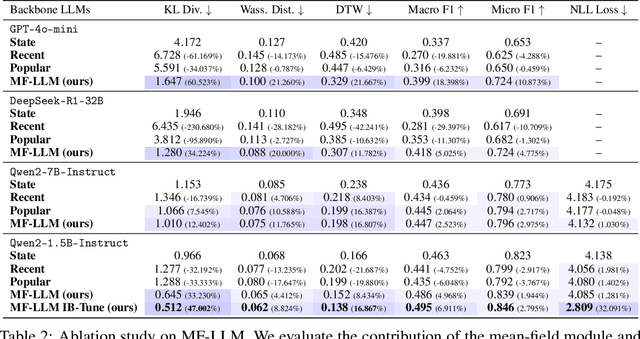MF-LLM: Simulating Collective Decision Dynamics via a Mean-Field Large Language Model Framework
Paper and Code
Apr 30, 2025



Simulating collective decision-making involves more than aggregating individual behaviors; it arises from dynamic interactions among individuals. While large language models (LLMs) show promise for social simulation, existing approaches often exhibit deviations from real-world data. To address this gap, we propose the Mean-Field LLM (MF-LLM) framework, which explicitly models the feedback loop between micro-level decisions and macro-level population. MF-LLM alternates between two models: a policy model that generates individual actions based on personal states and group-level information, and a mean field model that updates the population distribution from the latest individual decisions. Together, they produce rollouts that simulate the evolving trajectories of collective decision-making. To better match real-world data, we introduce IB-Tune, a fine-tuning method for LLMs grounded in the information bottleneck principle, which maximizes the relevance of population distributions to future actions while minimizing redundancy with historical data. We evaluate MF-LLM on a real-world social dataset, where it reduces KL divergence to human population distributions by 47 percent over non-mean-field baselines, and enables accurate trend forecasting and intervention planning. It generalizes across seven domains and four LLM backbones, providing a scalable foundation for high-fidelity social simulation.
 Add to Chrome
Add to Chrome Add to Firefox
Add to Firefox Add to Edge
Add to Edge